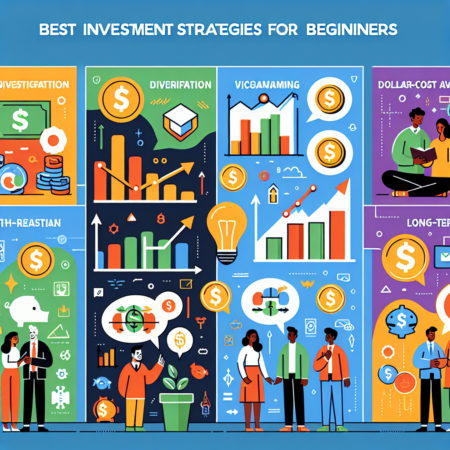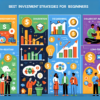Economic Forecasts for Investors: Navigating the Financial Future
As we step into 2024, investors are keenly watching economic indicators to make informed decisions. Understanding economic forecasts is crucial for navigating the financial landscape and achieving investment success. This comprehensive guide explores the key economic forecasts that every investor should monitor, providing actionable insights to help you stay ahead in the market.
Understanding Economic Forecasts
Economic forecasts are predictions about a country’s or region’s economic performance over a specific period. These forecasts are based on various indicators and models that analyze current and historical data. For investors, understanding these forecasts can provide a strategic advantage in making investment decisions.
Key Economic Indicators to Watch
Gross Domestic Product (GDP)
GDP measures the total value of goods and services produced over a specific time period. It’s a primary indicator of economic health. A growing GDP suggests a healthy economy, which can boost investor confidence and lead to higher stock market returns.
Unemployment Rates
Unemployment rates indicate the percentage of the workforce that is unemployed and actively seeking employment. Lower unemployment rates typically correlate with higher consumer spending, which can drive economic growth and positively impact investments.
Inflation Rates
Inflation measures the rate at which the general level of prices for goods and services is rising. Moderate inflation is a sign of a growing economy, but high inflation can erode purchasing power and negatively affect investments, particularly fixed-income securities.
Global Economic Trends Impacting Investments
In a globalized economy, international trends can significantly influence investment landscapes. Here are some global economic trends to consider:
Interest Rate Policies
Central banks adjust interest rates to control inflation and stabilize the economy. Lower interest rates can stimulate borrowing and investment, while higher rates may slow economic growth. Investors should monitor central bank announcements to anticipate changes in market conditions.
Geopolitical Events
Events such as elections, trade negotiations, and conflicts can create economic uncertainty. Geopolitical stability often leads to favorable investment conditions, while instability can increase market volatility.
Technological Advancements
Innovation drives economic growth by creating new industries and improving productivity. Sectors like technology and renewable energy are particularly influenced by advancements, presenting opportunities for investors.
Actionable Insights for Investors
To effectively utilize economic forecasts in your investment strategy, consider the following actionable insights:
Diversify Your Portfolio
Diversification helps mitigate risks associated with economic fluctuations. By spreading investments across various asset classes and sectors, you can protect your portfolio from downturns in any single area.
Stay Informed
Regularly update yourself with the latest economic reports and forecasts. Reliable sources include government publications, financial news outlets, and research from reputable institutions.
Adjust Investment Strategies
Based on economic forecasts, adjust your investment strategies to align with anticipated trends. For example, in times of expected economic growth, consider increasing exposure to cyclical stocks that tend to perform well during expansions.
Examples of Economic Forecasts in Action
Let’s explore how economic forecasts have influenced investment decisions in recent times:
Case Study: Interest Rate Hikes
In early 2023, the Federal Reserve signaled potential interest rate hikes to combat rising inflation. Investors anticipating higher rates reduced their exposure to high-dividend stocks and increased holdings in financial institutions that benefit from increased rates.
Case Study: Technological Innovation
The surge in demand for electric vehicles (EVs) was largely driven by forecasts predicting significant advancements in battery technology and increased environmental regulations. Investors who recognized this trend early invested in EV manufacturers and related supply chains, reaping substantial returns as the market grew.
Conclusion
Economic forecasts provide valuable insights that can shape investment strategies and optimize portfolio performance. By understanding key economic indicators, monitoring global trends, and applying actionable strategies, investors can make informed decisions that align with the evolving financial landscape. Stay proactive, stay informed, and navigate the financial future with confidence.
Frequently Asked Questions
- What are economic forecasts?
- Economic forecasts are predictions about a country’s or region’s economic performance, based on various indicators and models. They help investors anticipate market trends and make informed investment decisions.
- How can economic forecasts impact my investment strategy?
- Economic forecasts provide insights into future market conditions, allowing you to adjust your investment strategy accordingly. For example, anticipating economic growth may lead you to invest more in growth stocks.
- Which economic indicators should I focus on as an investor?
- Key indicators include Gross Domestic Product (GDP), unemployment rates, inflation rates, and interest rate policies. These indicators provide a comprehensive view of economic health and potential investment opportunities.
- How often should I review economic forecasts?
- It’s advisable to regularly review economic forecasts, such as quarterly or even monthly updates, to stay informed about the latest economic trends and adjust your investment strategy as needed.
- Can economic forecasts predict market crashes?
- While economic forecasts can indicate potential risks and downturns, predicting exact market crashes is challenging. They provide a framework for understanding economic conditions, but unforeseen events can still impact the market.
Disclaimer
The information provided in this article is for informational purposes only and should not be construed as financial or investment advice. It is always recommended to conduct thorough research and consult with a professional advisor before making any investment decisions.


















